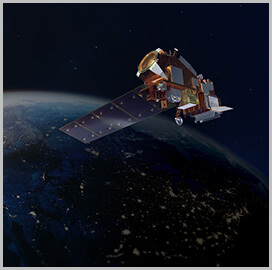The National Oceanic and Atmospheric Administration and NASA plans to launch NOAA’s third polar-orbiting environmental satellite to orbit aboard a United Launch Alliance Atlas V rocket no later than Nov. 1.
NASA said Joint Polar Satellite System-2 is slated to lift off from the Vanderberg Space Force Base in California to capture global environmental data to boost accuracy of weather monitoring and forecasting.
The satellite will be renamed NOAA-21 upon reaching orbit and continue the work of its predecessors NOAA-20, which was launched in November 2017 carrying a solar energy-measuring instrument.
JPSS-2 features a Visible Infrared Imaging Radiometer Suite instrument designed to collect imagery to support global observation of land, atmosphere, oceans and cryosphere.
NASA’s Low-Earth Orbit Flight Test of an Inflatable Decelerator will launch as a secondary payload for to JPSS-2.





